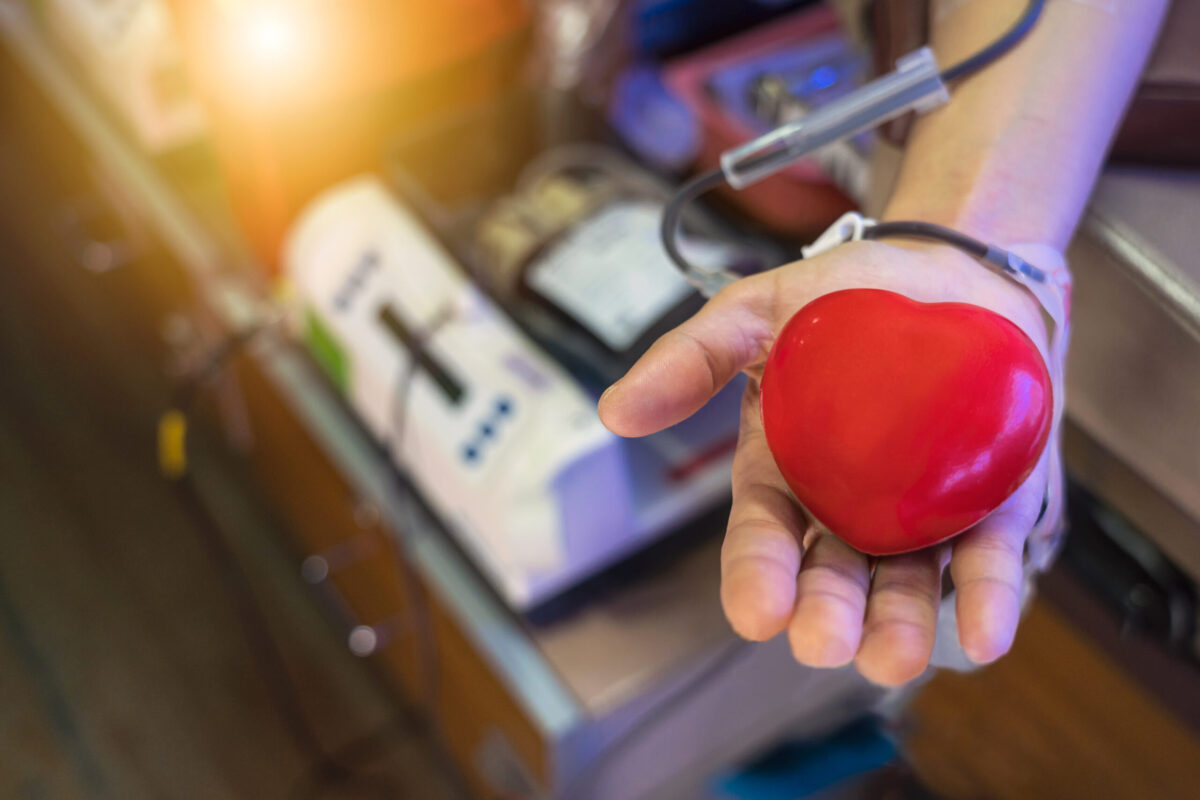Blood donation has decreased dramatically since the onset of COVID-19, but it’s still a serious need in Tennessee and around the country.
Blood centers typically aim to keep a week’s supply of blood on hand to meet community needs. Right now, many only have a day or two.
Here’s what you need to know about blood donation.
What are blood donations used for?
Blood donations are used for transfusions, safe medical procedures that deliver healthy blood to a person who’s lost blood through surgery or injury, or a person whose body isn’t making blood properly.
Blood transfusions can help anyone from cancer patients to new moms to people who suffer from bleeding disorders such as hemophilia. They are one of the most common procedures among people in the hospital of any age. One unit of blood can help save as many as 3-4 people’s lives.
Who can donate blood?
If you are in good health, are over age 16 or 17 and weigh at least 110 pounds, you can give blood.
View all eligibility requirements.
How does blood donation work?
Blood donation at an American Red Cross site typically takes about an hour, though the act of giving whole blood takes only about 8-10 minutes.
“Whole blood” is simply the blood that flows through your veins, which is made up of cells floating in plasma (a liquid made of proteins and salts). Red blood cells carry oxygen, white blood cells fight infection (antibodies) and platelets help blood clot.
The most common form of blood donation is whole blood. If you are donating platelets, red cells or plasma, collection can take up to 2 hours.
In general, these are the steps you’ll take to donate whole blood:
- Register and show a donor card, driver’s license or two other forms of ID.
- Answer confidential questions about your health and travel history.
- Have your temperature, hemoglobin, blood pressure and pulse checked.
- Donate a pint of blood, which will take about 8-10 minutes.
- Rest for 10-15 minutes to allow your body to adjust to the slight decrease in fluid volume.
- Continue with your day as normal.
How long does donated blood last?
Donated red blood cells have a shelf-life of 42 days. Healthy donors can donate every 56 days.
Is it safe to give and receive blood?
Yes. The U.S. blood supply is safer than it has ever been. Before donating blood, you will be asked questions to ensure you’re in good health and free of transmittable diseases.
You blood will be tested for:
- Blood type to ensure compatibility between donor and recipient
- Proteins (antibodies) that may cause adverse reactions in people who receive blood
- Infectious diseases such as COVID-19, hepatitis B and C, HIV, syphilis, West Nile, Zika and human T-cell leukemia type 1
Is it safe to give blood during COVID-19?
Yes. Giving blood is an essential community service, and it’s considered safe by the U.S. Department of Health and Human Services, the CDC and the FDA. Masks must be worn while in a donation site, and children or other adults cannot accompany a donor at this time.
Can you give blood if you’ve had the COVID-19 vaccine?
Yes. According to the CDC, the COVID-19 vaccine is an mRNA vaccine, which is a new kind of vaccine. To trigger an immune response, many vaccines put a weakened or inactivated germ into our bodies. Not mRNA vaccines. Instead, they teach our cells how to make a protein — or even just a piece of a protein — that triggers an immune response inside our bodies. That immune response, which produces antibodies, is what protects us from getting infected if the real virus enters our bodies.
Can you give blood if you’ve previously had COVID-19?
Yes, but only if you’re fully recovered and no longer quarantining. If you think you currently have COVID-19, ask your doctor about getting tested and do not give blood.
Anyone who gives blood now will learn whether or not they’ve ever had COVID-19. If you are positive for antibodies, you may be able to donate convalescent plasma, which may help seriously ill coronavirus patients.
Donate blood
Get more information about specific health terms, topics and conditions to better manage your health on bcbst.com. BlueCross BlueShield of Tennessee members can access wellness-related discounts on fitness products, gym memberships, healthy eating and more through Blue365®. BCBST members can also find tools and resources to help improve health and well-being by logging into BlueAccess and going to the Managing Your Health tab.


